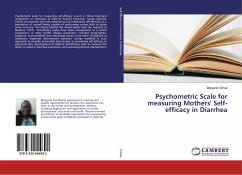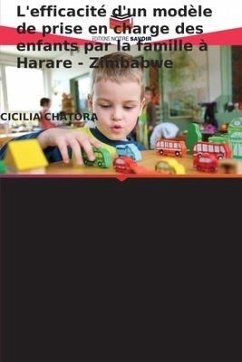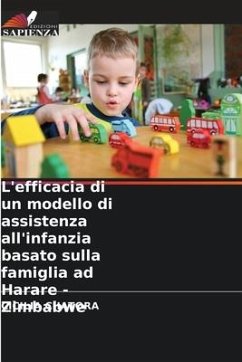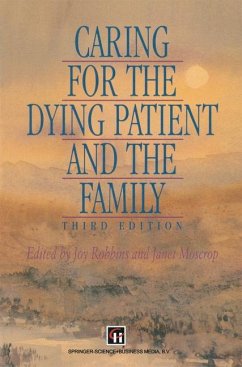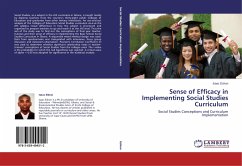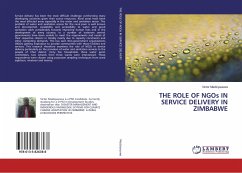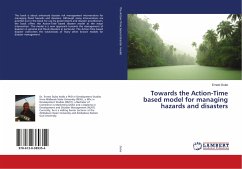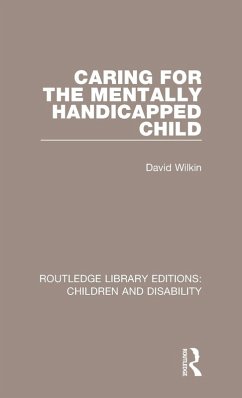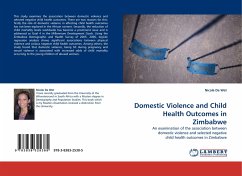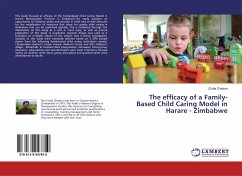
The efficacy of a Family-Based Child Caring Model in Harare - Zimbabwe
Versandkostenfrei!
Versandfertig in 6-10 Tagen
27,99 €
inkl. MwSt.

PAYBACK Punkte
14 °P sammeln!
This study focused at efficacy of the Family-Based Child Caring Model in Harare Metropolitan Province in Zimbabwe.This study provides an opportunity to influence policy and practice in child care as well advocate for the mobilization of resources that allow for quality child caring in Zimbabwe that can be replicated globally. This is facilitated through the distribution of this study as a soft or hard copy, as well as journal publication of this study. A qualitative research design was used as it facilitates an in-depth inquiry of the subject that is being investigated. Subjects to this study ...
This study focused at efficacy of the Family-Based Child Caring Model in Harare Metropolitan Province in Zimbabwe.This study provides an opportunity to influence policy and practice in child care as well advocate for the mobilization of resources that allow for quality child caring in Zimbabwe that can be replicated globally. This is facilitated through the distribution of this study as a soft or hard copy, as well as journal publication of this study. A qualitative research design was used as it facilitates an in-depth inquiry of the subject that is being investigated. Subjects to this study were randomly selected based on a 60% sample drawn from the following family-based child caring institutions namely; Chinyaradzo children's home, Harare children's home and SOS children's village - Waterfalls. To facilitate data triangulation, interviews, focus group discussion, observations and questionnaires were used. Interviews focused mainly on children while focus group discussions andquestionnaires were administered to adults.



